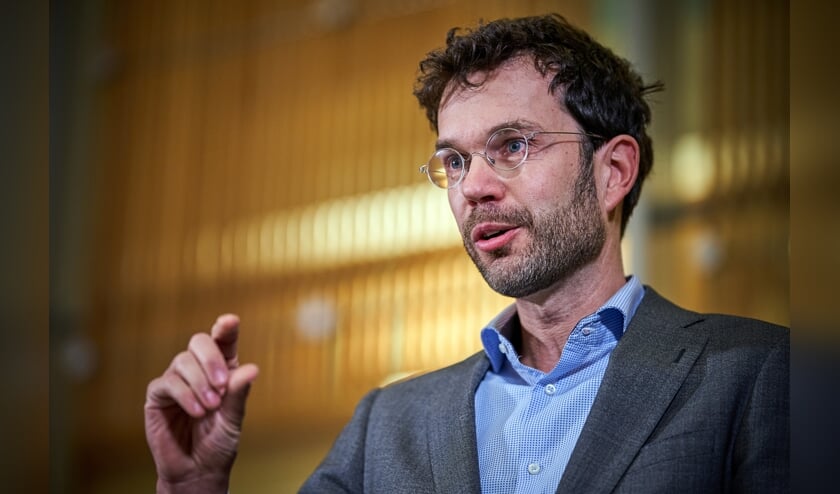<div id="inzetafbeelding" style="margin-right:10px; width:100%;" title="
Jaap van Delden (RIVM): ‘We are doing everything we can, but we do not have enough information to say whether it will be successful this year.’
“>
<a rel="nofollow" style="display:inline;" class="lightbox w-100" href="https://nederlandsdagblad.pubble.cloud/9ed0159c/content/2020/11/71d916f7-21a7-4f65-b15e-0beddb0e3a1e_thumb1140.jpg" title="
Jaap van Delden (RIVM): ‘We are doing everything we can, but we do not have enough information to say whether it will be successful this year.’
(image anp / Phil Nijhuis) “>
Jaap van Delden (RIVM): ‘We are doing everything we can, but we do not have enough information to say whether it will be successful this year.’
(image anp / Phil Nijhuis) “/>
Jaap van Delden (RIVM): ‘We are doing everything we can, but we do not have enough information to say whether it will be successful this year.’
(image anp / Phil Nijhuis)–
–
Bilthoven
It’s not likely as it looks now, but it’s not impossible either. We are doing everything we can, but we do not have enough information to say whether it will be successful this year. We cannot control all steps ourselves, ‘says Jaap van Delden, program director for corona vaccination at the National Institute for Public Health and the Environment (RIVM).
Van Delden says he does not have the impression that the Netherlands is lagging behind neighboring countries. A vaccine must first be admitted to the market, then the delivery must be released and finally the delivery itself follows. ‘All European countries will only use a vaccine if it has been registered,’ says Van Delden.
All adult Dutch are eligible for a vaccination. The elderly and people with poor health are the first to act. ‘The most important risk factor for the virus is age. This is followed by heart complaints, lung disorders and diabetes, but these are often found in people of older age, ‘explains Hans van Vliet of the National Immunization Program of the RIVM. After the elderly and the vulnerable, it is the turn of people who work in healthcare. Van Vliet: ‘They do not run a very high risk thanks to good protection measures, but they can pose a risk to others if they have the virus among the members. People from the risk groups are the first to visit doctors and care providers. Moreover, it is important to keep the care going. ‘ Vaccination of children is not yet on the agenda.
nursing home
The elderly and disabled are vaccinated by the doctor of the nursing home or healthcare institution. GPs will vaccinate people under 60 with medical problems, as well as people over 60 with and without health problems. Others will be injected through the health services. Who has been vaccinated with which vaccine is kept in a special administration. It can also remind people that it is time to get a second dose of the medicine. The data can also be used to monitor side effects. It is not yet known how long the corona vaccine protects. ‘Most people are still virgin, they have no defenses yet. Maybe the vaccine will work for three years, maybe five years, we have to learn that, ‘says professor of vaccinology Cecile van Els.
infections
The number of new corona cases has increased again in the past 24 hours, after a sharp decrease the previous day. Between Tuesday morning and Wednesday morning, 4,947 positive tests were registered, the National Institute for Public Health and the Environment announced. The previous 24 hours involved 3,970 new cases. The National Institute for Public Health and the Environment (RIVM) warned on Tuesday that the number of corona cases is still falling, but that the decrease is stagnating.
–
–


